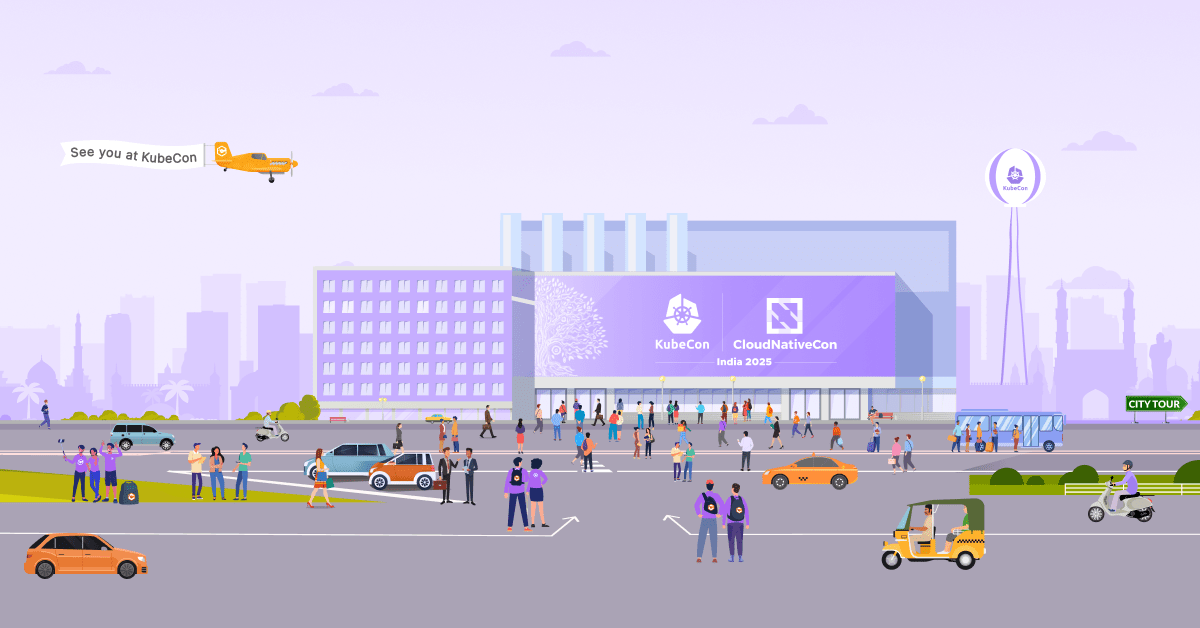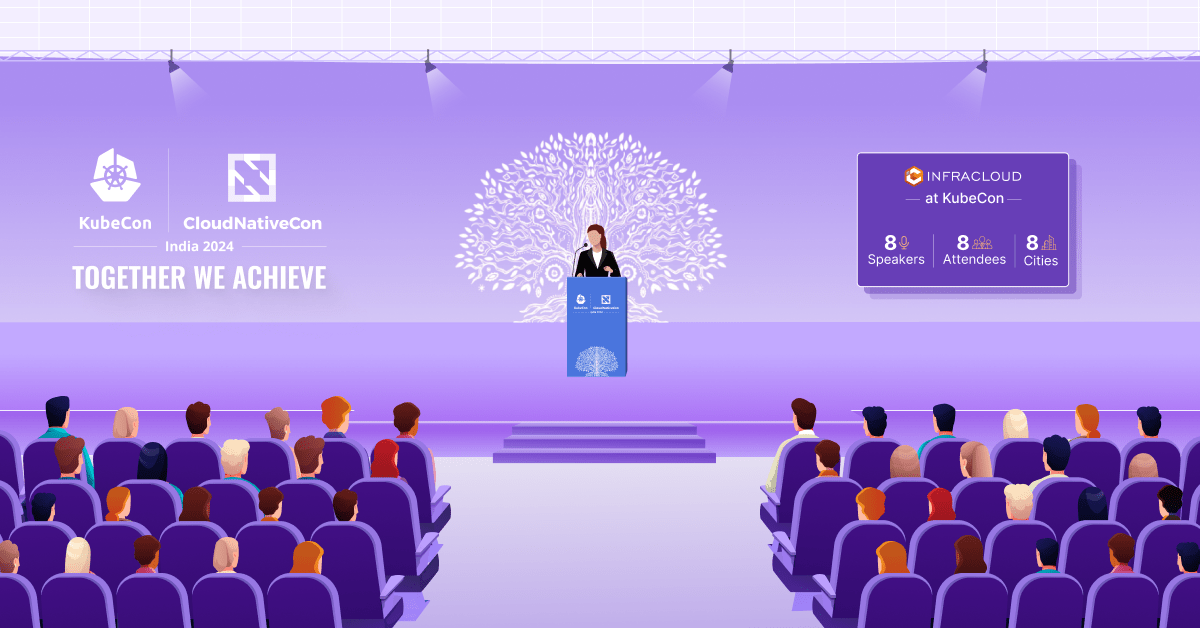
What it's like to be an Engineer at InfraCloud
 Bhavin Gandhi
Bhavin Gandhi  Saravanan Gnanaguru
Saravanan Gnanaguru  Lakshmikanth Shivanna
Lakshmikanth Shivanna What does a normal day in the life of an InfraCloud engineer look like?
The day often begins with posting updates on project-specific Slack channels. Infranauts (we call InfraCloud employees as Infranauts 👨🚀) will also have daily stand-ups with the team and clients to discuss updates and blockers. After the daily call, team members will work on their respective tasks. In case someone needs help within a team, they would have usually posted the need on a Slack thread. Other team members then help resolve the query, or if urgent, get into a call to clarify. Our day usually ends with daily water-cooler meetup, where Infranauts get together & just have fun. We unwind ourselves by playing games, sharing our experiences, practicing mindfulness through yoga and much more. Having fun and relaxing is an important task of our day at InfraCloud.
What are the most common tools that engineers use at InfraCloud?
One of the good things about working at InfraCloud is that individuals are free to choose tools they are comfortable with.
When it comes to development related tasks, some of them use the classic terminal while others use more fancy, customized Emacs/Vim/Neovims that make their lives easier. In terms of IDEs as well, some engineers use VS Code, while others use IntelliJ and others are happy with Atom.
Being a remote organization, collaboration is key in everything we do. Tools like Slack, Google Suite/Meet help us collaborate and work efficiently. And when we talk about collaboration, our code bases are also stored on GitHub which allows all of us to be in sync. So if we are not coding, we are pushing and pulling code 😉
Which are the common programming languages that most InfraCloud engineers code in?
At InfraCloud people are working on different projects with various requirements. The skills required for these projects vary and hence individuals use different technologies and platforms.
For people in the SRE roles, often use Shell Scripting, Python, Terraform HCL files, CI/CD pipeline using Groovy/GitHub Actions workflow, Kubernetes YAMLs, Bash;
While people in the product engineering side of things are coding in Go, JavaScript, and Angular. Based on the clients’ requirements, you can find Infranauts using Python as well.
What are the internal forums at InfraCloud that help engineers learn and grow?
- There are internal meetups. Like public meetups, these are forums where individuals or teams talk about new technologies they worked on, or how they solved some problem. Sometimes people share their development workflows, workstation setups, etc. too.
- There are Special Interest Groups (SIGs), some of which focus on specific technologies and they explore things in a specific area, do PoCs, write blog posts, and so on.
- We have Slack channels where anyone can participate in sessions and ask doubts when stuck, have discussions, or even solve a problem together as a group. For example, the #engineering channel is used for any questions related to technical challenges, architect suggestions, and tooling-related questions. It’s like an internal Stack Overflow. The #citadel channel is for anything related to training and cross-skilling and so on.
- We also have the “Know your Infranaut” sessions to know more about the culture at InfraCloud from employees who have been here for years.
- This is in addition to bootcamps and workshops for new joinees to help them catch up on the culture here along with the technologies that they will be working on.
How do new tools get introduced?
One often comes across new tools and technologies from reading blog posts or watching conference videos, especially FOSDEM and KubeCon talk recordings. Whenever someone sees a tool that can solve some problem in our project, the process of bringing that into the project starts. This usually involves evaluating that tool by doing PoCs if required, talking with stakeholders, implementing it in the project, and evangelizing internally within the teams so that they adopt it. Our meetups are an excellent place to discuss these. One such example was Helm v3. It was adopted as soon as it was released as it simplified our setup. There are more such examples of Infranauts adopting new tools such as Argo CD, Thanos, Karpenter, and so on.
TGICN (inspired by Joe Beda’s TGIK) is another initiative where a bunch of explorers try out something new in the cloud native space. We’ve discussed topics like Grafana Tanka, Skaffold, CUE lang. So every two weeks, these folks meet and discuss new technologies, and projects on the block that can be utilized in their projects.


You use code reviews as a way to ‘Stay Ahead of the Curve’, one of InfraCloud’s core values. How does that work?
Code reviews at InfraCloud let Infranauts understand the “why” of the change. Of course, they also cover the correctness of the code, test coverage, functionality changes, and conformity to coding guides and best practices. They also help you identify mistakes you might have overlooked or those that automated testing did not catch. The feedback gives you better or different ways to implement similar logic. We believe that code reviews are a two-way learning process. While the newer folks learn how to write efficient code, the experienced ones discover new ways/logics of coding features. You get to know how they think about the overall product from different stakeholders’ perspectives. You learn something new from each code review.
What soft skills are InfraCloud engineers encouraged to build to get better at work?
- Communicating effectively is the most important one, especially when asynchronous communication is a major part of how we interact, given that we are remote and working with folks across time zones. This skill is much needed when working with different stakeholders – be it clients or peers, to communicate things like your progress, the issues/blockers you face, and more.
- Another important skill is storytelling, in the context of writing blog posts or giving talks in community meetups/conferences. This is basically a skill of presenting a topic in a way where you engage the audience. And this helps in your work as well, for example, while giving demos to stakeholders, mentoring someone, or even writing technical documentation.
- Team Work: Infranauts are always eager to learn and try to do something out of the box. You’ll find some of us going that extra mile, interacting with folks from other teams and working on some novel solutions. In the process, we learn how to work in teams and contribute towards a larger cause.
- Time Management: Being a completely remote organization, managing time is something most Infranauts are great at. From setting aside time for lunches, coffee breaks and fun Fridays, we learn how to plan our days. Many of us have dedicated focus hours wherein we do nothing but focus on the work at hand. (Everything else takes a back seat until unless the production server is on fire of course ;))
What makes InfraCloud a special place to be an engineer?
- Being a remote-first organization, you get to decide your own schedule and have work-life harmony. InfraCloud is very supportive when it comes to personal life. There’s a WFH equipment reimbursement, and even a Learning and Development budget.
- Whatever you do here, you get to own it and take it to completion. This empowers you to make decisions. But while you own it, you are never alone or on your own. You always have your mentor/lead and all Infranauts to help you and give you feedback.
- You will find yourself solving unique problems/challenges involving bleeding-edge technologies in the infrastructure space.
- It feels less like a company and more like a place of education, with platforms to continuously learn things and the freedom to participate in hackathons, speak at conferences, or write blog posts.
- There is no micromanagement or partiality. Everyone here is extremely friendly and open to guide others in growing, not just professionally but personally as well.
- People have the flexibility to chat with their mentors if they feel like they’re not upskilling. When this happens, it is discussed, and a roadmap is built to match Infranaut’s long-term goals and skills.
- Open source is a big part of InfraCloud. Everyone is encouraged to contribute to projects, give talks, and participate in the meetups. We lean more towards writing a public blog post about problems we solve rather than keeping it as an internal document.
- Lastly, we take fun seriously at InfraCloud. Be it playing Skribbl online regularly, debating over chai vs coffee and creating memes, Infranauts are masters at this. Being a remote organization, such daily interactions help us keep our work stress at bay. We also plan regular meetups like Converge where Infranauts come together, work, play, and more importantly, have fun.
That was a sneak peek into the life of an InfraCloud engineer, from learning about their routines to understanding how things move at InfraCloud. Sarvanan, Bhavin and Lakshmikanth have been associated with InfraCloud for a long time now. Saravanan believes that “InfraCloud gives ample opportunities to explore, learn and grow” Bhavin on the other hand feels “InfraCloud has helped me to grow by solving problems in the infrastructure space” while Lakshmikanth sums up his experience as “Working at InfraCloud opened up the doors to open source world and cloud native technologies which I wasn’t exposed to”.
Do you also want to work alongside engineers and developers who’re ahead of the curve? Come join us at InfraCloud!
Answers by: Bhavin Gandhi, Senior SRE; Saravanan Gnanaguru, Principal Engineer; Lakshmikanth Shivanna, Associate SRE.
Stay updated with latest in AI and Cloud Native tech
We hate 😖 spam as much as you do! You're in a safe company.
Only delivering solid AI & cloud native content.










